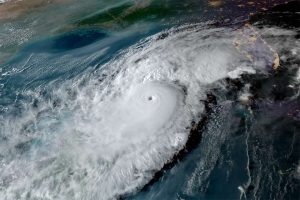 In the aftermath of two powerful hurricanes the process of assessing the damage and rebuilding begins. Businesses suffered billions of dollars in losses during hurricanes Helene and Milton, both in physical property damage and disruption of their business (i.e., lost profits). That is precisely why businesses purchase property and other commercial insurance—to indemnify them when disaster strikes. However, it is not uncommon for businesses to be unpleasantly surprised when they present a claim to discover that their insurers are unwilling to stand behind the full insurance coverage they promised. This is particularly so in the case of a substantial loss, and even more so in the aftermath of a wide-area catastrophe—such as a hurricane or other natural disaster—because such catastrophes have negative repercussions on insurers given the number of impacted policyholders.
In the aftermath of two powerful hurricanes the process of assessing the damage and rebuilding begins. Businesses suffered billions of dollars in losses during hurricanes Helene and Milton, both in physical property damage and disruption of their business (i.e., lost profits). That is precisely why businesses purchase property and other commercial insurance—to indemnify them when disaster strikes. However, it is not uncommon for businesses to be unpleasantly surprised when they present a claim to discover that their insurers are unwilling to stand behind the full insurance coverage they promised. This is particularly so in the case of a substantial loss, and even more so in the aftermath of a wide-area catastrophe—such as a hurricane or other natural disaster—because such catastrophes have negative repercussions on insurers given the number of impacted policyholders.
This article highlights eight property adjustment and coverage issues. Understanding and being thoughtful about these issues now, including working with coverage counsel as appropriate, is critical to maximizing insurance recovery.
Continue Reading ›
 Policyholder Pulse
Policyholder Pulse



 In the aftermath of two powerful hurricanes the process of assessing the damage and rebuilding begins. Businesses suffered billions of dollars in losses during hurricanes Helene and Milton, both in physical property damage and disruption of their business (i.e., lost profits). That is precisely why businesses purchase property and other commercial insurance—to indemnify them when disaster strikes. However, it is not uncommon for businesses to be unpleasantly surprised when they present a claim to discover that their insurers are unwilling to stand behind the full insurance coverage they promised. This is particularly so in the case of a substantial loss, and even more so in the aftermath of a wide-area catastrophe—such as a hurricane or other natural disaster—because such catastrophes have negative repercussions on insurers given the number of impacted policyholders.
In the aftermath of two powerful hurricanes the process of assessing the damage and rebuilding begins. Businesses suffered billions of dollars in losses during hurricanes Helene and Milton, both in physical property damage and disruption of their business (i.e., lost profits). That is precisely why businesses purchase property and other commercial insurance—to indemnify them when disaster strikes. However, it is not uncommon for businesses to be unpleasantly surprised when they present a claim to discover that their insurers are unwilling to stand behind the full insurance coverage they promised. This is particularly so in the case of a substantial loss, and even more so in the aftermath of a wide-area catastrophe—such as a hurricane or other natural disaster—because such catastrophes have negative repercussions on insurers given the number of impacted policyholders.